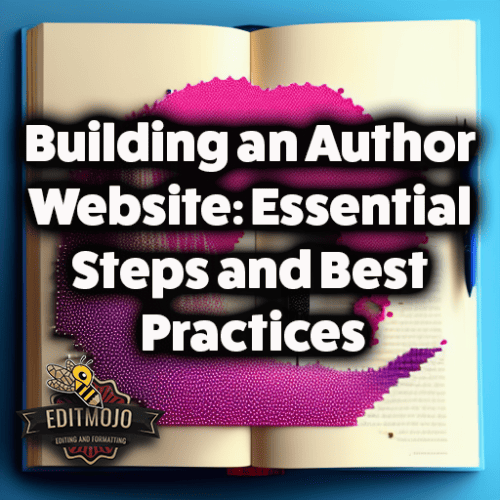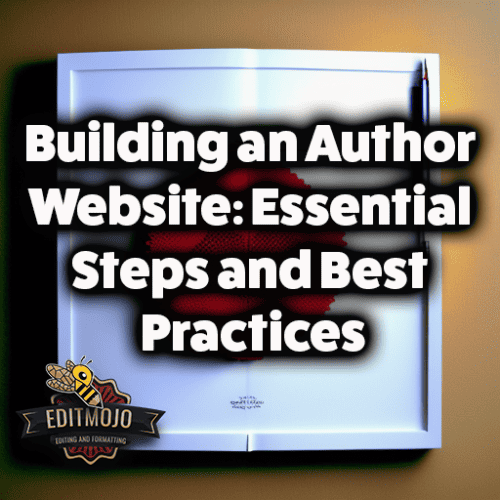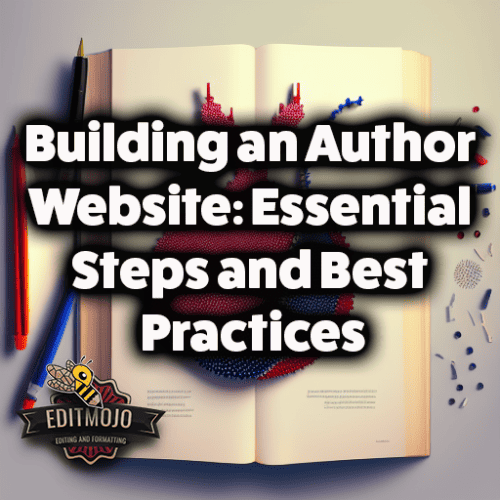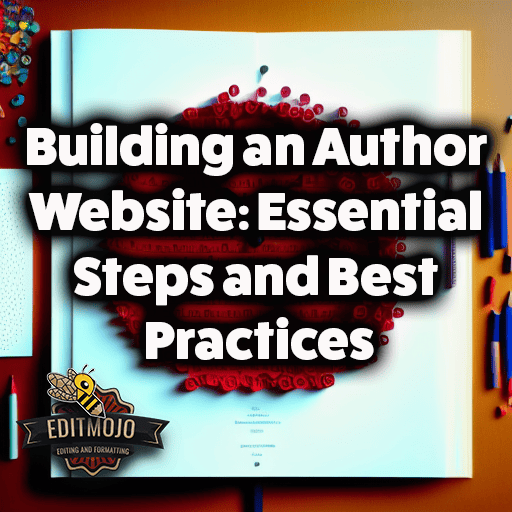Building an author website: Essential steps and best practices
Building an Author Website: Essential Steps and Best Practices. As an author, having a digital home is no longer a luxury—it’s a necessity. Your author website serves as your platform to connect with readers, publishers, and fellow writers. It’s the first place people will look to learn more about you and your work.
Key Takeaways Table
| Aspect | Key Takeaway |
|---|---|
| Purpose of Author Website | A platform to connect with readers, showcase your work, provide updates, and offer a contact point |
| Preparation | Define your brand by understanding your audience and unique selling proposition. Plan your website content |
| Website Platform | Choose between platforms like WordPress, Wix, or Squarespace depending on your needs, budget, and technical skills |
| Setting Up | Register your domain, choose a hosting provider, and set up your website using your chosen platform |
| Essential Pages | Key pages include Home, About, Books, Blog, and Contact. Also, consider a newsletter sign-up and e-commerce integration |
| SEO for Authors | Understand keyword research, on-page SEO, off-page SEO, and local SEO to make your website visible to search engines |
| Maintenance | Regularly add fresh content, use analytics to understand your visitors, and update your website |
| Successful Examples | Check out websites of successful authors for inspiration |
Understanding the Basic Purpose of an Author Website
An author website should reflect your brand, showcase your work, provide updates on new projects, and offer a point of contact for those interested in your work. Joanna Penn, a successful self-published author and entrepreneur, states that, “Your website is the only piece of the internet that you own. You need to have a site for the perusal of potential readers, agents, publishers, journalists, bloggers, or anyone who might want to know more about you.”
Brief Overview of Steps to Build an Effective Author Website
Building an author website involves several steps, from understanding your audience and defining your brand, choosing the right platform, to setting up, designing, and optimizing your site. Let’s delve into these steps.

II. Preparation for Building Your Website
Defining Your Brand as an Author
1. Understanding Your Audience
Understanding your audience is paramount. Ask yourself: Who will read my books? What do they like? How old are they? This understanding will influence your website design, content, and marketing strategies.
2. Uncovering Your Unique Selling Proposition (USP)
Your USP is what sets you apart from other authors. Perhaps you’re an expert in a niche area, or you have a unique writing style. Identifying and communicating this will help attract your ideal readers.
Planning Your Website Content
1. Essential Pages for an Author Website
Every author website should have a few key pages: Home, About, Books, Blog, and Contact. We’ll discuss these pages in detail later.
2. Creating Compelling Website Copy
The language on your website should reflect your writing style. Keep it consistent, engaging, and ensure it speaks directly to your audience.

III. Choosing the Right Website Platform
There are numerous website platforms available, and the one you choose depends on your needs, budget, and technical skills. Let’s look at a few popular ones:
- WordPress: A versatile and highly customizable platform. It’s ideal if you’re looking to build a more complex website or planning to scale in the future.
- Wix and Squarespace: These platforms are more user-friendly, offering intuitive drag-and-drop builders. They’re perfect for authors looking for a simple, stylish, and functional website.
For a detailed comparison of these platforms, check out this guide.
IV. Setting Up Your Author Website
Domain Registration
Choosing a domain name is crucial. It should be easy to spell, memorable, and reflective of your brand. Think “yourname.com” or “yourbooktitle.com.”
Hosting
Several companies offer hosting services, such as Bluehost or SiteGround. Choose a host that guarantees good site speed, uptime, and customer support.
Installation and Setup
Most hosting providers offer easy WordPress installation. For platforms like Wix or Squarespace, you can set up your website directly on their platforms.
Choosing and Customizing Your Website Theme
Choose a theme that aligns with your brand. Make it visually appealing, but remember, simplicity often wins. Many platforms offer a range of free and paid themes you can customize.
V. Essential Pages and Features of an Author Website
**Homepage
**
Your homepage is your digital storefront. It should draw visitors in and make them want to explore further. Consider highlighting your latest book, reviews, and a short author bio.
About Page
Here’s your chance to connect with your audience on a personal level. Share your journey, your motivations, and what readers can expect from your books.
Book(s) Page
This page showcases your work. Include book covers, synopses, purchase links, and reviews. If you’ve written several books, consider organizing them into series or genres.
Blog
A blog is an excellent tool to build your online presence. Share insights into your writing process, book excerpts, or thoughts on your genre. You could also guest post on popular blogs like Writer’s Digest.
Contact Page
Make it easy for visitors to get in touch. Include a contact form, your email address, and links to your social media accounts.
Newsletter Signup
A newsletter is a powerful tool for building your reader base. Use it to share updates, special offers, and sneak peeks into upcoming work.
E-commerce Integration
Consider selling signed copies, merchandise, or e-books directly from your site. Services like Shopify or WooCommerce can help.

VI. SEO for Authors: Getting Discovered Online
Search Engine Optimization (SEO) is the process of making your website visible to search engines. Here’s a basic rundown:
1. Keyword Research
Identify keywords related to your genre, your books, and writing. Tools like Google Keyword Planner can help.
2. On-page SEO
Optimize your website’s content and metadata with your keywords.
3. Off-page SEO
Create quality backlinks to your site. This could involve guest blogging, social media activity, or collaborations with other authors.
4. Local SEO
If you’re famous in your locale, make sure your website is discoverable by local readers. Google My Business can help with this.
VII. Best Practices for Maintaining and Updating Your Website
Regularly Adding Fresh Content
A regularly updated website shows that you’re active and engaged with your audience. A blog can help keep your content fresh.
Using Analytics to Understand Your Visitors
Tools like Google Analytics provide insights into your audience behavior. Use this data to improve your website.
Updating Your Website
Keep your website updated with your latest books, events, and blog posts. Regularly check for broken links, outdated information, and potential improvements.
VIII. Case Studies: Successful Author Websites and Why They Work
Spotlight on Different Genres and How They Approach their Websites
For example, George R.R. Martin includes a detailed bibliography, FAQs, and a dedicated page for fan art. Romance novelist Nicholas Sparks includes detailed book pages and a separate section for his movies.
What You Can Learn from These Successful Author Websites
These websites excel at showcasing the author’s work, keeping fans updated, and providing a glimpse into the author’s world.
IX. Conclusion
Building an author website may seem daunting, but it’s a crucial step towards a successful writing career. It’s about understanding your audience, choosing the right platform, setting up your site, creating engaging content, and maintaining your website.
X. Appendix: Useful Resources and Tools for Building an Author Website
Here are some helpful resources:
- Website Building Platforms: WordPress, Wix, Squarespace
- SEO Tools: [
Google Keyword Planner](https://ads.google.com/home/tools/keyword-planner/), Yoast SEO
- Content Creation Tools: Grammarly, Hemingway App
- E-commerce Platforms: Shopify, WooCommerce
- Newsletter Service Providers: Mailchimp, Substack
- Analytics Tools: Google Analytics
- Hosting Providers: Bluehost, SiteGround
Remember, your author website is your calling card to the world. Make it count.
Top Five Questions and Answers Table
| Question | Answer |
|---|---|
| Why do I need an author website? | An author website serves as your digital home where readers, publishers, and fellow writers can learn more about you and your work. |
| What website platform should I use? | Choose between platforms like WordPress, Wix, or Squarespace. WordPress is versatile and customizable, while Wix and Squarespace are more user-friendly. |
| What are the essential pages for an author website? | Essential pages include Home, About, Books, Blog, and Contact. |
| What is SEO and why is it important for my website? | SEO stands for Search Engine Optimization. It is the process of making your website visible to search engines, which helps increase your site’s visibility and attract more readers. |
| How often should I update my author website? | Regular weekly updates are recommended. A blog can help keep your content fresh, while updates on new books or events keep your audience engaged. You should also periodically check for any technical issues. |
